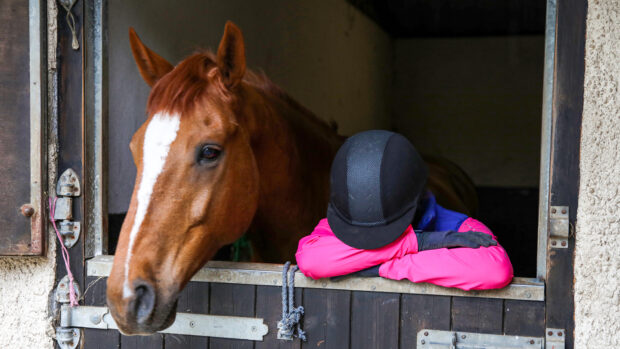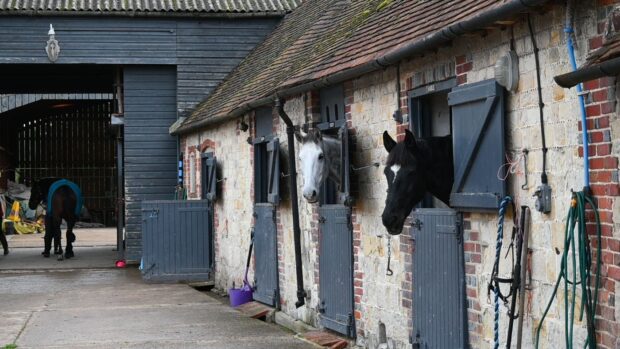Livery yards can be viable businesses – but running them as such, and being focused on costs, is key.
This is the message for yard owners, as rising costs across the industry continue to be a concern for many. Utilities, business rates, the minimum wage and the cost of hay, feed and bedding have all risen, but some yard owners are reluctant to increase livery prices.
Stephen Cole runs a viable livery yard, Parsons-Cole, in north Hertfordshire. He offers five- and seven-day full or ridden livery, and employs five members of staff.
“I understand things can be hard but you really have to understand your costs. We have all our processes streamlined and the yard is run efficiently; we have everything timed so we know how much staff we need, we installed automatic drinkers and switched from straw to shavings to make things easier,” he told H&H.
“We also plan six months to a year ahead; I’ve already bought the winter hay and I’m constantly planning. Sometimes I’ll say to the team we need to just tweak something a bit, because you’ve got to be on the ball all the time.
“This year our national insurance contributions and the minimum wage went up so our livery prices went up with it. I explained to the customers why we’re doing it; no staff means no service.”
He added that he has lost liveries in the past to price raises, but gained others, and said yards have to move with rising costs.
“You have to be open-minded that you may lose liveries, but I’m OK with that. You can’t have a service and not pay for it,” he said.
Milton Keynes-based Folly Fields Farm owner Helen Newbold told H&H she has been forced to become “more business-minded”. She has “drastically” reduced her liveries, no longer employs staff and the farm has diversified in a number of ways, including having a dog-walking field.
“The business we are running is profitable, but only because we’ve been brave enough to make changes. We have taken a bit of a step back and it does force you to look at things,” she said.
“We’re not here to subsidise people’s hobbies and it’s hard; liveries become friends and you don’t want to put prices up, but it’s making sure your business model works and continually checking your figures to make sure everything adds up. I have everything recorded so I can see what everything costs each month and there’s nowhere to hide.
“It’s too easy to let years go by, suddenly realise you’re running at a loss, and the amount you’ve got to put your prices up to get back to where you were becomes too much.”
Cheryl Johns of yard directory Livery List told H&H it is challenging if, when livery charges go up, client expectations go up too.
“Horse owners think that if the yard is putting the prices up, they should be getting better or more facilities. It can end up a bit of a vicious circle of constantly needing to meet expectations that cost more, then prices having to go up,” she said.
“But the people doing it as a hobby, or unintentionally keeping their prices low to keep stables full, they’re undervaluing and undermining the people trying to run yards as a business. It’s totally possible to have a viable yard, but you have to be knowledgeable about your own business and costs.”
Ms Johns added that it is also down to horse owners to make careful decisions on where they keep their horses.
“Do they have things like insurance, and health and safety, and biosecurity policies? If we can eradicate some of these places that don’t have these things, horse and yard owners would have to face up to what it really costs to keep a horse,” she said.
- To stay up to date with all the breaking news from major shows throughout 2025, subscribe to the Horse & Hound website
You may also be interested in:

Horse world faces ‘perfect storm’ of wage and tax increases

Why owners and livery yards must acknowledge the true cost of keeping horses

Subscribe to Horse & Hound magazine today – and enjoy unlimited website access all year round




